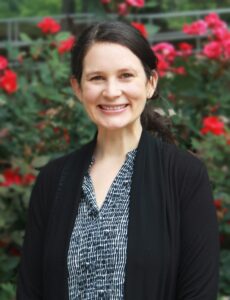Sarah Kowitt, PhD, MPH, Adam Goldstein, MD, MPH, and Samuel Cykert, MD, recently published a study that found a cardiovascular disease risk reduction intervention improved rates of tobacco screening and cessation support in small primary care practices in North Carolina.

Sarah Kowitt, PhD, MPH, Adam Goldstein, MD, MPH, and Samuel Cykert, MD, recently published the study “A Heart-Healthy Intervention Improved Tobacco Screening Rates and Cessation Support in Primary Care Practices” in the Journal of Prevention.
In this impactful study, the team found that a cardiovascular disease risk reduction intervention, “Heart Health Now,” improved rates of tobacco screening and cessation support in small primary care practices in North Carolina. The Heart Health Now intervention consisted of educational tools, onsite practice facilitation for one year, and a practice-specific cardiovascular population management dashboard that included monthly, measure-specific run charts to help guide quality improvement.
“Research shows that brief advice from physicians to stop smoking can be very powerful, but in order for physicians to provide advice, they need to know who uses tobacco,” Kowitt said. “So any intervention that increases tobacco screening rates is important. Focusing on small practices is also important because they can face challenges in making quality improvements due to fewer resources and/or staff.”
The study included 28 practices with 78,000 patients, which means that ~10,500 additional adults were screened for tobacco use and many may have quit as a result of this intervention. Future interventions may build on the study’s findings to improve tobacco screening and cessation counseling, reducing disparities in rural communities where primary care practices have fewer resources.
“This type of research is transformative for rural patients and practices across the country. It shows physicians can and will counsel patients to quit smoking have given support and resources,” Goldstein, Professor of Family Medicine and Director of the UNC Tobacco Intervention Programs, said.